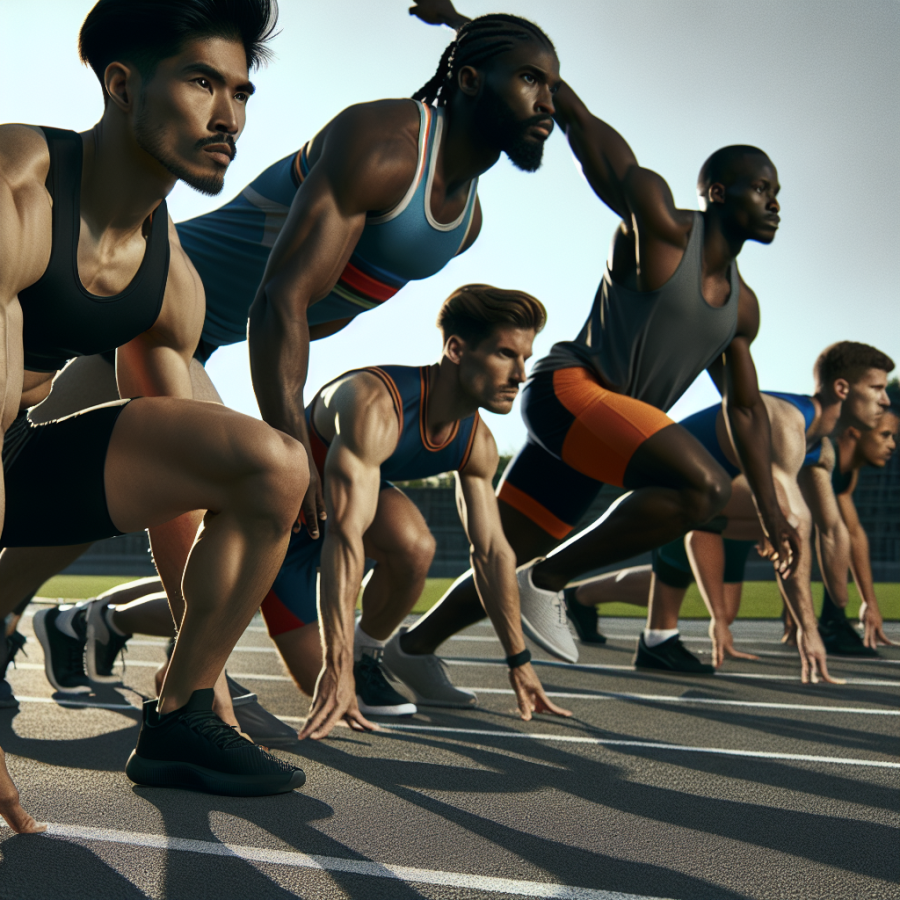Mental and Physical Resilience: The Driving Force Behind Ultra-Competitive Athletes
Physically demanding activities are habitually executed by extraordinarily competitive athletes. They go to the extremes, taking their bodies to the limits of human capability, and even beyond at times, as spectators and fans can't help but marvel at their sheer strength, endurance, and resilience. This resilience, both mental and physical, is considered the driving force behind these ultra-competitive athletes.
One element that cultivates resilience in top-performing athletes is their ability to cope with stress. This doesn't solely mean the physical strain endured during training or competitions, but also the emotional pressure surrounding high-stakes sports. Athletes face the continual stress of being in the public eye, the expectation of high performance, potential injury, and more. The leading athletes are those who have mastered the ability to manage this pressure and convert it to drive their quest towards victory.
Physical resilience is also another factor that sets ultra-competitive athletes apart. Often, these competitors need to recover rapidly so they can The peak bodies for their given professions. To ensure this, their training regimen typically extends beyond muscle strengthening. They ensure their bodies are as adaptable as possible to swiftly bounce back from any hit, fall, or injury. This could be anything from mindful recovery time, specific fitness routines, or carefully constructed diets designed to fuel and heal their bodies most effectively.
Good mental health is another key aspect of being an ultra-competitive athlete. This enables the athlete to sustain focus even when faced with distraction or adversity. They remain goal-oriented and strive to maintain peak mental agility alongside sustained physical endurance. Maintaining good mental health also helps these athletes deal with the extreme highs and lows associated with competitive sport, allowing them to sustain their performance levels consistently over time.
Mental resilience is intrinsically tied to the physical. In conditions of exhaustion, it is the mental durability that encourages an athlete to keep pushing. Injuries are also a challenge that competitors face. Bouncing back from an injury, especially one that forces an athlete to step away from their discipline for a while, requires profound mental fortitude. The minds of these athletes work hand-in-hand with their bodies, existing as a crucial tool in healing and recovery.
The repeated process of pushing physical limits and then recovering also strengthens an athlete's resilience, as each round prepares them for the next mental and physical challenge. This strenuous routine, when done with conscious care for the body and mind, allows athletes to build that endurance and become competent in the face of trial.
Read also:
Maximizing Your Fitness: Effective Exercise Workouts for All Levels
The Evolution of Ultra-Competitive Athletes: Beyond Traditional Limits
As the world of sports advances, so too does the methods athletes use to compete against one another. The modern athletic arena is evolving beyond the traditional limits of physical ability, with a new generation of ultra-competitive athletes pushing the boundaries of what was once considered humanly possible.
‘Ultra-competitiveness’, a term coined to describe this paradigm shift, signifies more than simply wanting to win. It epitomizes the relentless pursuit of excellence that drives these athletes to continually redefine their limits. This mentality has reshaped the narratives within both individual and team sports, leading to an explosion of record-breaking performances across numerous disciplines.
Driving this evolution is a comprehensive understanding of athleticism that goes beyond mere physical prowess. Modern sports science has worked to uncover the mysteries of elite performance, integrating aspects like mental toughness, strategic acumen, and an intimate understanding of one’s body into definitions of athletic success. Consequently, an holistic approach to training and performance is becoming the norm.
Transitioning from traditional training techniques, athletes are now exploiting cutting-edge technology and personalized training regimes to optimize their performance. This bespoke approach allows each athlete to target their individual strengths and weaknesses, enhancing their overall output on the court, track, or field.
Moreover, the advent of advanced data analytics has revolutionized training management. Athletes and coaches can now monitor and evaluate their performance in real-time, assessing their biometric data, nutritional intake, and physical output to finely tune their regimen. This potent mix of science and technology provides precise, real-time feedback, enabling athletes to push their bodies to the very edge of their physiological potential.
The mental game has also evolved, with world-class athletes acknowledging the critical role psychology plays in their performance. Many athletes employ sports psychologists to enhance their mental toughness, manage stress and pressure, and cultivate a winning mindset. This focus on mental conditioning aids athletes in overcoming the psychological barriers that often restrict performance, thus enabling them to push past traditional limitations.
The influence of this ultra-competitiveness extends beyond the athletes themselves. It has altered the expectations of spectators, who increasingly crave superhuman performances and records shattering feats. The media too reflects this shift, often lionizing these ultra-competitive athletes into larger-than-life figures.
Indeed, the evolution of ultra-competitive athletes signifies an exciting new era in sports, one that transcends traditional limitations and continues to redefine what’s possible in human performance. The methods may have changed, but the goal remains the same- to continually push the boundaries of athletic achievement.




